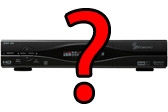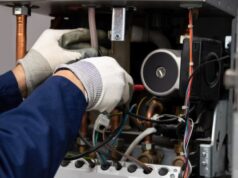
If you’re looking to replace their VCR will most likely have to choose between a Digital Video Recorder (DVR) and a Personal Video Recorder (PVR). But what’s the difference?

Those who are looking to replace their humble VCR or DVD player will most likely have to choose between a Digital Video Recorder (DVR) and a Personal Video Recorder (PVR).
What’s the difference?
They are both essentially the same thing: an electronic device used to record media digitally, as opposed to the VCR’s analogue format. While VCRs use an analogue tape to record and play programs broadcast over television, DVRs or PVRs encode video data in MPEG video formats and store the data in a hard drive.
This is where the main difference comes in. A PVR stores files on a hard drive, and you can keep these for as long as you want. A DVR temporarily stores files on a smaller hard drive, and if you want to keep the files you need to burn them onto an external source such as a DVD. DVRs and PVRs have all of the same functionality of VCRs (recording, playback, fastforwarding, rewinding and pausing) plus the ability to pause ‘live’ television and resume without missing any part of the program.
Two of the most common systems are TiVo and ReplayTV.





